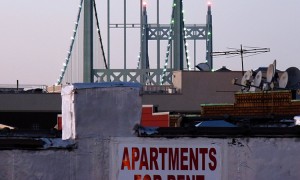Renting an apartment in New York City can be both an exciting and overwhelming task. There are so many issues to consider when renting, such as location, price point, and apartment features. However, one thing that many people forget to make a part of their NYC apartment search is looking up their rights as a tenant.
NYC tenant rights can change over the years. Keeping up to date with what can and can’t be done, and who’s protected and who isn’t, all depends on the latest set of rules issued by the city — everything from rent stabilization to lease renewal regulations. To get familiar with your rights, start by consulting the New York City Rent Guidelines Board (RGB).
Tenant Rights in Rent-Regulated Apartments
Rent Regulation Defined: A number of communities in New York State have rent regulation programs known as rent control and rent stabilization. Rent regulation is intended to both protect tenants in privately owned buildings from sharp rent increases and allow owners to maintain their buildings and realize a reasonable profit. If living in a rent-stabilized apartment, tenants will have their rent slowly increase over a certain agreed-upon time.
Lease Renewal: This past June, the RGB adopted renewal lease guidelines for rent-stabilized homes. Tenants in rent-regulated apartments are entitled to receive required services and to have their leases renewed, and they may not be evicted except on grounds allowed by law. Leases may be renewed for one or two years, at the tenant’s choice.
Complaints: Tenants can file relevant complaints on a variety of forms created by the Division of Housing and Community Renewal (DHCR). The DHCR is required to serve the complaint on the owner, gather evidence and then can issue a written order which is subject to appeal.
General Renters’ Rights
Beyond the rules that apply to rent-regulated apartments, there are NYC tenant rights that apply to every renter.
For example, all renters have the option to not renew their lease. No one is allowed to legally force you to sign a document extending your lease if you don’t want to and if the lease has passed its enforcement date. That said, in an unregulated apartment, landlords are not required to offer tenants a renewal lease, so make sure to clarify with your landlord what happens at the end of your lease.
All tenants are legally allowed to collect on their security deposits once moving out of the apartment or by not renewing the lease.
When only one tenant is named on a lease, the tenant has the right to take in a roommate and the roommate’s dependent children. When two or more tenants are named on the lease, these tenants may share their apartment with immediate family, and, if one of the tenants named in the lease moves out, that tenant may be replaced with another occupant.
There are even additional protections and rules for senor citizens and disabled persons looking to rent.
For all the information on NYC tenant rights and the latest set of laws and approvals, consult the government agencies referred to above, such as the RGB and the DHCR. Arming yourself with as much information as you can will help ensure that your experience as an apartment renter will go as smoothly as possible.
[cf]skyword_tracking_tag[/cf]







[…] NYC Tenant Rights: What Do You Need to Know? […]